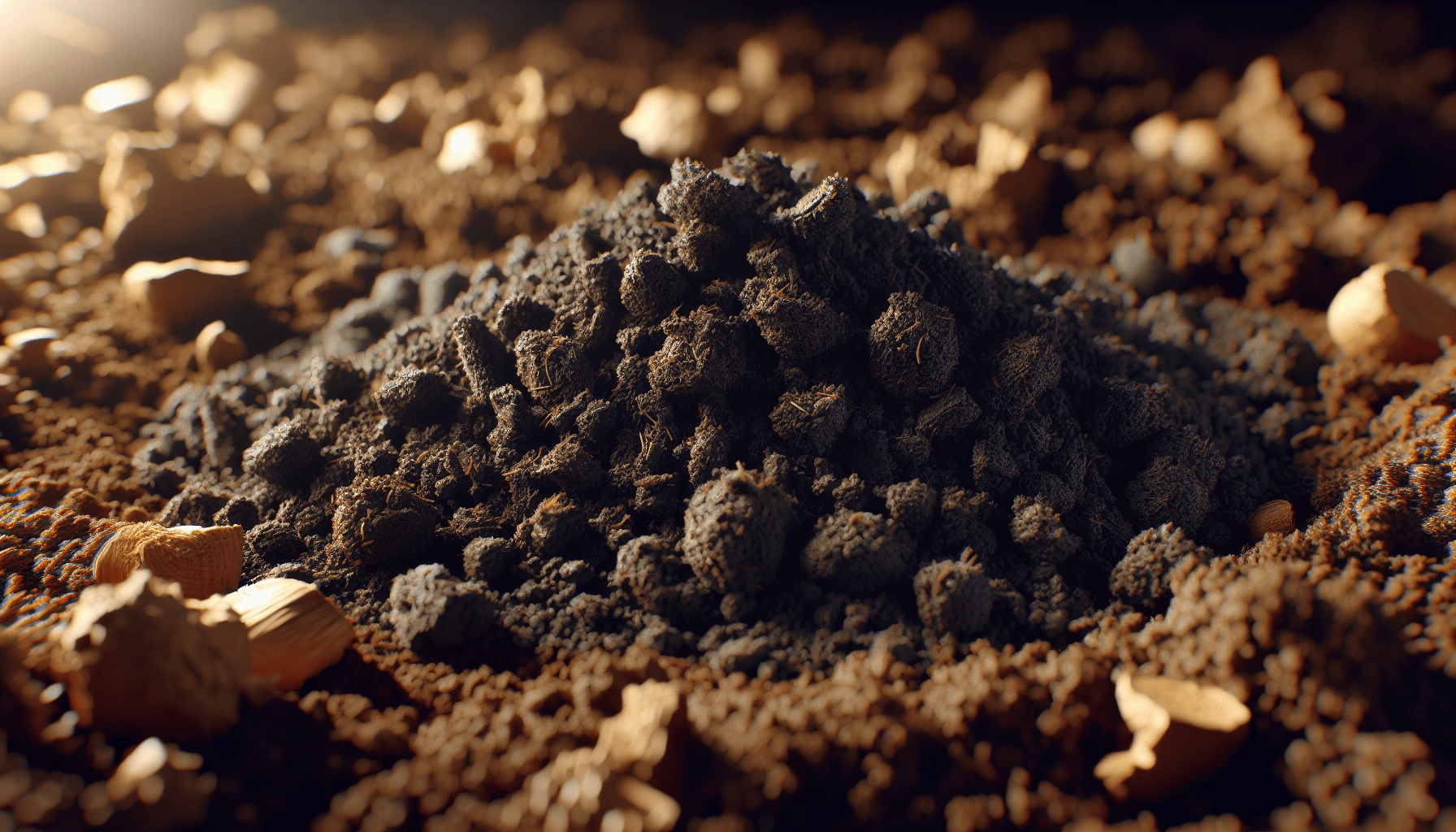Does Mushroom Compost Improve Water Retention In Soil?
Have you ever wondered if using mushroom compost in your garden can help improve water retention in the soil? This article will explore the benefits of mushroom compost and how it can positively impact the ability of soil to retain water. So, let’s dive in and find out more about this eco-friendly soil amendment!

What is Mushroom Compost?
Mushroom compost is a type of organic material that is a byproduct of mushroom cultivation. It is made from a mixture of different organic materials such as straw, corn cobs, gypsum, and sometimes even poultry manure. Mushroom compost is rich in nutrients and beneficial microorganisms, making it a popular choice for improving soil health.
Fungal Power
One of the key components of mushroom compost is mycelium, which is the vegetative part of a fungus. Mycelium plays a crucial role in breaking down organic matter in the compost pile, making nutrients more readily available to plants. This fungal power is what sets mushroom compost apart from other types of organic soil amendments.
Water Retention in Soil
Water retention in soil refers to the ability of the soil to hold onto water and make it available to plants for a longer period of time. Soil that has good water retention can help plants withstand periods of drought and reduce the need for frequent watering.
Importance of Water Retention
Having good water retention in soil is essential for healthy plant growth. When soil is able to hold onto water, plant roots can easily access moisture, nutrients, and oxygen. This promotes strong root development and overall plant growth.
Learn about mushroom composting
Benefits of Mushroom Compost for Water Retention
Now that we understand the basics of mushroom compost and water retention in soil, let’s take a closer look at how using mushroom compost can improve the water-holding capacity of soil.
Organic Matter Content
Mushroom compost is rich in organic matter, which helps improve soil structure and porosity. The presence of organic matter in the soil creates small spaces where water can be stored and released slowly to plant roots. This increases the overall water retention capacity of the soil.
Nutrient-Rich Composition
In addition to organic matter, mushroom compost is also rich in essential nutrients such as nitrogen, phosphorus, and potassium. These nutrients not only nourish plants but also improve soil health and structure. When soil is nutritionally balanced, it can better retain water and support plant growth.
Improved Soil Structure
The fibrous nature of mushroom compost helps improve soil structure by increasing aeration and drainage. When soil is well-aerated and well-drained, water can penetrate deep into the root zone and be retained in the soil for longer periods of time. This can be especially beneficial during dry spells when plants need access to moisture.
How to Use Mushroom Compost for Water Retention
Now that we know the benefits of using mushroom compost for improving water retention in soil, let’s discuss how you can incorporate it into your gardening routine effectively.
Mixing into Soil
To improve water retention, mix mushroom compost into the top few inches of soil in your garden beds. This will help distribute nutrients and organic matter evenly throughout the soil, improving its ability to store water. Make sure to water the area thoroughly after incorporating mushroom compost to help it settle properly.
Mulching
Another way to use mushroom compost for water retention is to apply it as a mulch around the base of plants. Mulching helps reduce evaporation from the soil surface, keeping moisture levels consistent and preventing water loss. Apply a layer of mushroom compost around plants, leaving some space around the stems to prevent rotting.
Compost Tea
You can also make compost tea using mushroom compost and water to improve the water-holding capacity of soil. Simply soak a bag of mushroom compost in a bucket of water for a few days, then use the nutrient-rich liquid to water your plants. Compost tea helps introduce beneficial microorganisms to the soil, further enhancing its ability to retain water.

Other Benefits of Mushroom Compost
In addition to improving water retention in soil, mushroom compost offers a range of other benefits for your garden. Let’s explore some of the additional advantages of using this organic soil amendment.
Weed Suppression
Mushroom compost can help suppress weed growth by creating a barrier between weed seeds and the soil. The dense texture of mushroom compost makes it difficult for weed seeds to germinate, reducing the need for manual weeding and herbicides.
Disease Suppression
The beneficial microorganisms in mushroom compost can help suppress plant diseases by outcompeting harmful pathogens in the soil. This can reduce the risk of common plant diseases such as damping off, root rot, and powdery mildew, leading to healthier plants overall.
Sustainable Gardening
Using mushroom compost in your garden can help promote sustainable gardening practices by recycling organic waste materials and reducing the need for synthetic fertilizers. Mushroom compost is a renewable resource that can be produced locally, making it an eco-friendly choice for improving soil health.
Conclusion
In conclusion, mushroom compost is a valuable soil amendment that can improve water retention in soil and provide a range of other benefits for your garden. By incorporating mushroom compost into your gardening routine, you can create healthy, nutrient-rich soil that supports strong plant growth and reduces water usage. So, why not give mushroom compost a try in your garden and see the difference it can make? Happy gardening!

